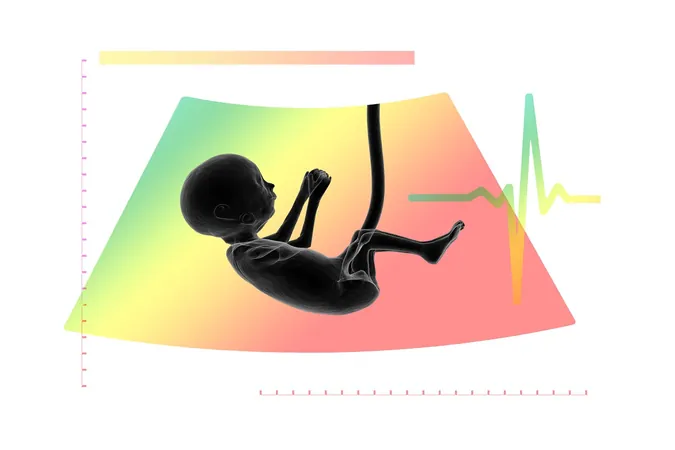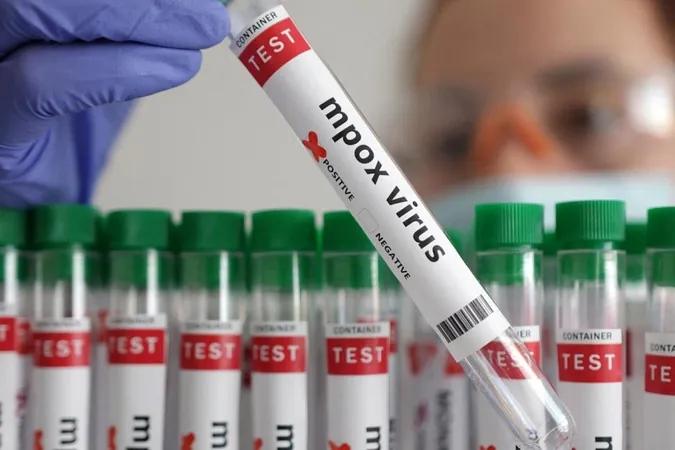
Shocking Study Reveals Unseen Link Between Placental Changes and Rising Cases of Asthma and Allergies in Children!
2024-10-08
Author: Mei
Shocking Study Reveals Unseen Link Between Placental Changes and Rising Cases of Asthma and Allergies in Children!
In a groundbreaking study conducted at Örebro University, researchers have unveiled a startling correlation between alterations in the placenta and the heightened risk of asthma and allergies in children. Published in the esteemed journal *Pediatric Allergy and Immunology*, this research may change how pediatricians approach newborn care.
Maria Lodefalk, a leading researcher and chief physician in pediatrics at Örebro University Hospital, emphasizes the importance of understanding the placenta's role in a child's health post-birth. "We pediatricians ought to focus more on the potential significance of the placenta for the child after birth," she states, pointing to the need for further awareness in the field.
The study, co-authored by Zaki Bakoyan, a physician and former medical student at Örebro University, reviews data from 19 separate studies involving approximately 13,000 children. Their findings are alarming: children born prematurely are three times more likely to develop asthma-related issues if inflammation is present in the fetal membranes and placenta. This risk compounds the already known likelihood of lung diseases associated with premature births.
Furthermore, researchers found a strong association between unusually heavy placentas and a surge in asthma medication prescriptions for full-term infants during their first year. While the data presents a compelling case, Lodefalk cautions that the direct causal relationship between placental changes and children's asthma or allergies remains uncertain. "Proving a causal link in pregnant women is nearly impossible," she explains, "but we cannot ignore these noteworthy results."
The implications of these findings could revolutionize newborn care routines, particularly for high-risk infants. Previous studies have suggested that the development of atopic diseases such as asthma can start in the womb, and Lodefalk offers a plausible explanation: "Inflammation in the placenta may trigger a cascade of inflammatory responses in the fetus, potentially harming lung development or disrupting the immune system even after birth."
To enhance healthcare responses, she advocates for close monitoring of children born prematurely or with inflammation-related placental issues. "Weighing and sending all placentas for analysis when there are uncertainties could be a simple yet effective strategy," she asserts.
The placenta, a vital temporary organ during pregnancy, not only nourishes the fetus but also plays a crucial role in immune defense, producing essential hormones for both mother and child. The widespread prevalence of asthma and allergies—affecting nearly 40% of the Swedish population—may correlate with genetic and environmental factors, including exposure to smoking and air pollution.
As this new research sheds light on previously overlooked determinants of childhood health, it calls for urgent attention from healthcare professionals and further studies. Understanding the link between placental health and the risk of asthma could lead to innovative preventive measures and treatments for children at risk.
Stay tuned as we uncover more about this fascinating topic that could change the landscape of pediatric health forever!




 Brasil (PT)
Brasil (PT)
 Canada (EN)
Canada (EN)
 Chile (ES)
Chile (ES)
 España (ES)
España (ES)
 France (FR)
France (FR)
 Hong Kong (EN)
Hong Kong (EN)
 Italia (IT)
Italia (IT)
 日本 (JA)
日本 (JA)
 Magyarország (HU)
Magyarország (HU)
 Norge (NO)
Norge (NO)
 Polska (PL)
Polska (PL)
 Schweiz (DE)
Schweiz (DE)
 Singapore (EN)
Singapore (EN)
 Sverige (SV)
Sverige (SV)
 Suomi (FI)
Suomi (FI)
 Türkiye (TR)
Türkiye (TR)